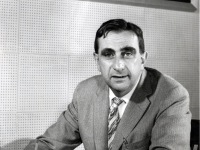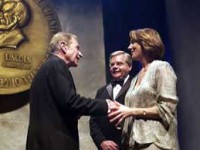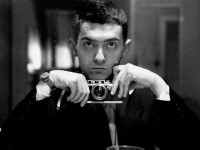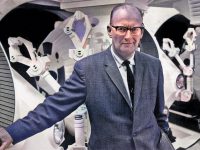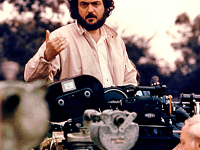Edward Teller and Stanley Kubrick’s Dr. Strangelove
On January 15, 1908, Hungarian born US theoretical physicist Edward Teller, often referred to as ‘Father of the hydrogenic bomb‘, was born. Teller made numerous contributions to nuclear and molecular physics, and is considered one of the inspirations for the character Dr. Strangelove in the 1964 Stanley Kubrick movie of the same name. “There’s no system foolproof enough to defeat a sufficiently great fool.” — Edward Teller, As quoted in “Nuclear Reactions”, by…
Read more

